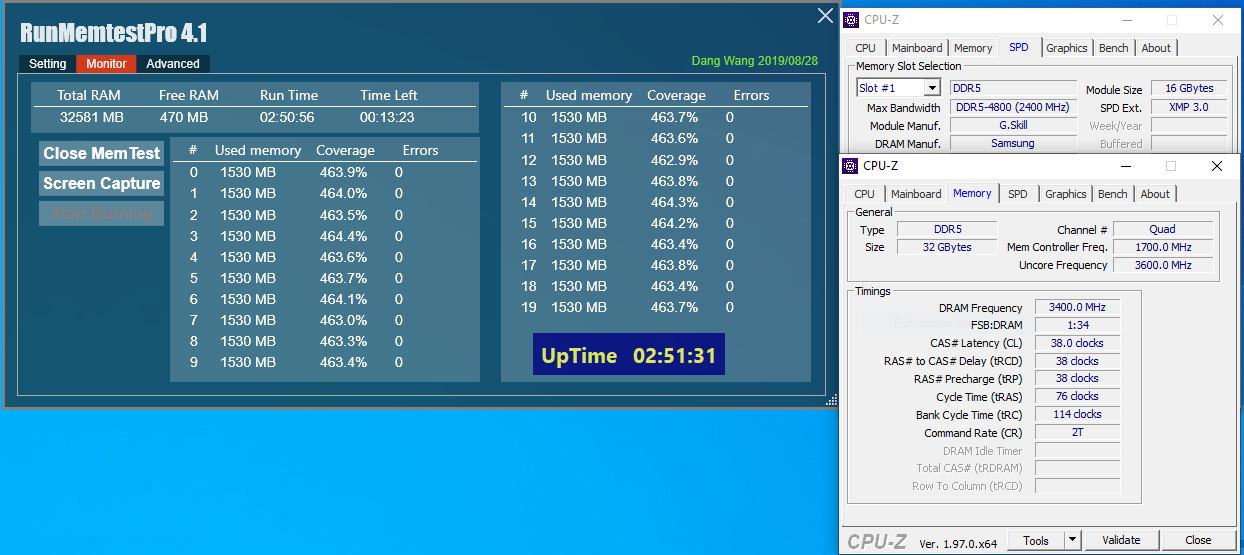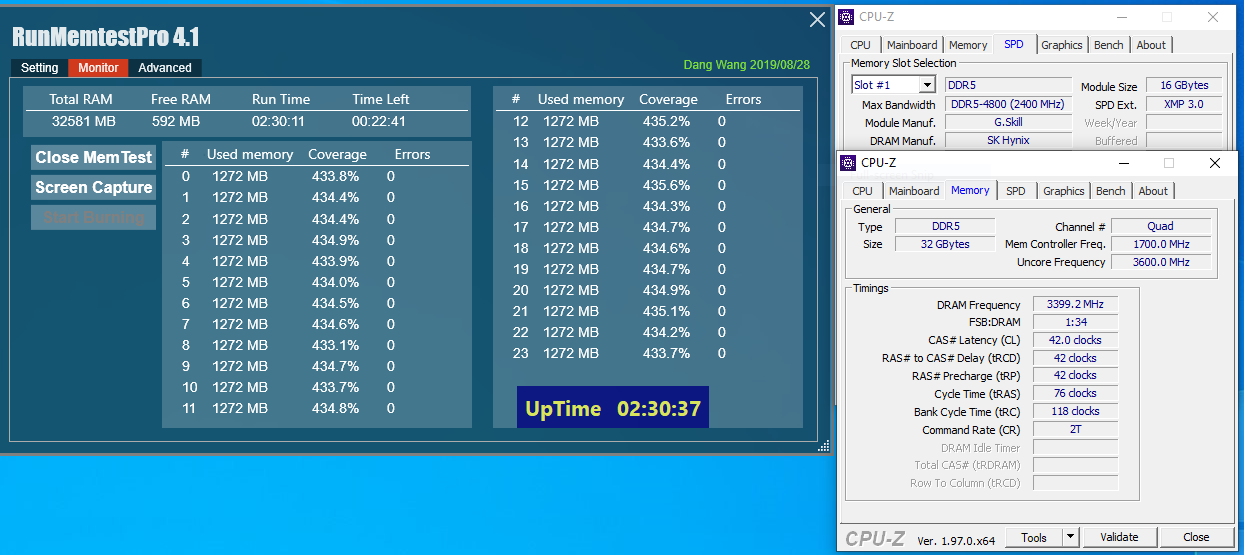G.Skill has launched high-speed DDR5 memory for the latest Intel 12th Generation Alder Lake processors and Z690 motherboards. The DDR5-6800 memory kits will definitely fight for a spot on the list of best RAM.
The new DDR5-6800 memory kits hail from G.Skill's high-performance Trident Z5 family. In terms of timings, the DDR5-6800 SKU doesn't have tight timings like the recently announced DDR5-6600 memory kit at C36. However, the higher data rate on the DDR5-6800 allows it to offer a slight increase in bandwidth. The DDR5-6600 memory kit delivers a peak memory bandwidth of up to 52.8 GBps, whereas the DDR5-6800 memory kit lands with 54.4 GBps, a 3.8% improvement.
G.Skill offers the Trident Z5 DDR5-6800 32GB (2x16GB) memory kits in two flavors. The one that utilizes Samsung integrated circuits (ICs) is rated for 38-38-38-76, while the one with Hynix ICs comes in at 42-42-42-76. Unfortunately, G.Skill didn't reveal the DRAM voltage for either memory kit, but we're expecting at least 1.25V to remain stable at DDR5-6800.


If we look at the single access latency times, the DDR5-6800 C38 memory kit is at 11.2ns, while the C42 variant is slightly higher at 12.4ns. For reference, the DDR5-6600 C36 memory kit's latency works out to 10.9ns. In the case of the DDR5-6800 C38 memory kit, it kind of balances out. Although it has a 2.8% higher latency, the memory kit offers 3.8% more memory bandwidth.
As you would expect, the Trident Z5 DDR5-6800 memory kits leverage Intel's XMP 3.0 extension. Remember that XMP 3.0 now supports up to five XMP profiles, where two are customizable by the user. So, in addition to the DDR5-6800 profile, the Trident Z5 memory modules will likely come with profiles with lower data rates for Alder Lake owners that don't have a processor with a strong IMC.
G.Skill hasn't shared the availability or pricing information for the Trident Z5 DDR5-6800 memory kits. G.Skill, like Corsair backs its DDR5 memory products with a limited lifetime warranty, but we've seen vendors, such as TeamGroup, reduce the warranty period to just three years.
Get Tom's Hardware's best news and in-depth reviews, straight to your inbox.

Zhiye Liu is a news editor, memory reviewer, and SSD tester at Tom’s Hardware. Although he loves everything that’s hardware, he has a soft spot for CPUs, GPUs, and RAM.
-
TJ Hooker Right now the best bang-for-buck DDR4 seems to be something around 3200 MT/s CL16 to 3600 MT/s CL18. These new GSkill kits (this article and the other linked article about DDR5-6600) are already getting pretty close to having the same real CAS latency as those DDR4 kits, but with double the speed. I don't remember DDR4 hitting twice the speed as then-popular DDR3 kits with the same latency right from the start like this (could be mistaken though, wasn't following the DDR4 rollout too closely), seems promising? DDR5 kits in general will obviously cost more than DDR4 for the first while, curious to see how these GSkill kits (and other kits with similar specs) will be priced vs baseline DDR5.Reply -
jaquith @peachpuff .. yes and no. Compare speeds and capacities DDR4 5333 $300 16GB 2x8B kit vs DDR5 5200 $300 32GB 2x16GB kit. However, yeah DDR5 is going to be extremely expensive for the foreseeable future. I got my hopes shattered on an ASUS ROG Glacial Z690 with a $2K price tag or nearly double what I had hoped.Reply